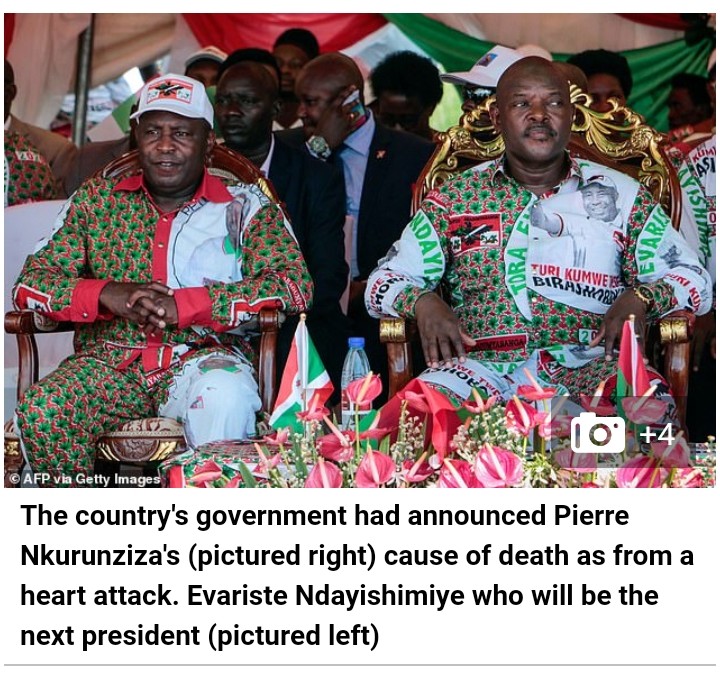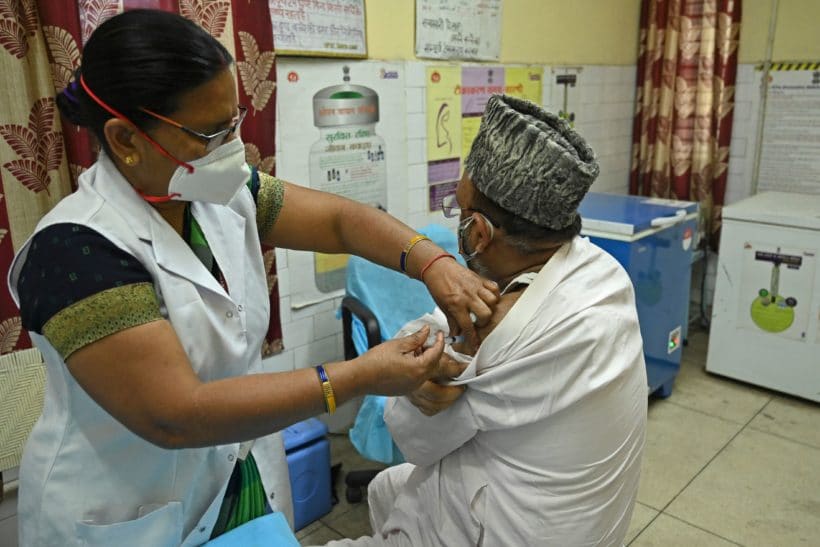
FG To Kill Pests In 12 Northern States With N13bn
June 13, 2020
Guidelines For Reopening Churches And Mosques in Nigeria by NCDC
June 15, 2020Burundi President Pierre Nkurunziza Died Of COVID-19 Disease

Burundi president becomes world’s first head of state to die of Covid confirm medics, despite government officials insisting death was due to heart attack
The Burundian president died from the coronavirus, according to medics at the hospital where he was flown to following his death.
The country’s government had announced Pierre Nkurunziza’s cause of death as from a heart attack.
A medical source at the Karusi hospital where Nkurunziza died, has confirmed the president was in ‘respiratory distress’ before his death.
Medics at the Kamenge university hospital in Bujumbura told AFP that the head of the institute of public health requested their hospital’s only ventilator and the head of our reanimation service ‘in the name of the presidency’ on Monday at 10am’.
The president was flown to the hospital in Karusi, but it was ‘too late,’ he was ‘already dead,’ a medical source in Karusi said.
Suspicions had been high the president had Covid-19 after his wife was hospitalised at the end of May with the virus. A medical document seen by AFP said she had tested positive for the virus and suffered ‘respiratory distress.’
The African country announced Nkurunziza’s ‘unexpected’ death on June 9 declaring a national week of mourning.
The government has yet to announce a date for his funeral, but is marking the seven-day period of national mourning, during which it has banned music in bars, nightclubs and karaoke, a statement said Thursday.
Nkurunziza had reportedly felt unwell on June 6 and ‘to very great surprise’ his health worsened, leading to a cardiac arrest from which he died in hospital, officials had said.
His wife Denise was airlifted for coronavirus treatment in Kenya on May 30, prompting some suspicion about the president’s true cause of death.
Nkurunziza was due to leave office in August after a controversial 15-year term marked by claims of repression and human rights abuses.
It was announced on Friday that Burundi’s constitutional court has agreed that president-elect Evariste Ndayishimiye should be sworn in immediately after the death of Nkurunziza.
A medical source at the Karusi hospital where Nkurunziza died, has confirmed the president had also been in ‘respiratory distress’ before his death.
Nkurunziza took office in 2005 under a power-sharing deal following a 12-year civil war which left 300,000 people dead.
His decision to run for a disputed third term in 2015 plunged the country into violence, leading to hundreds more deaths.
Facing allegations of widespread abuses, his government became the first country to leave the International Criminal Court in 2017.
Human Rights Watch says the police and ruling party are known to carry out ‘widespread human rights abuses’ including killings and arbitrary arrests.
Nkurunziza’s party was confirmed as the winner of May’s election last week, paving the way for the first peaceful transfer of power since independence in 1962.
The outgoing president had backed retired army general Ndayishimiye as his successor and saw him win nearly 70 per cent of the vote.
The opposition National Freedom Council (CNL), headed by Agathon Rwasa, had alleged the May 20 election was riddled with fraud and irregularities.
In the event of a president’s death, the constitution provides for the speaker of parliament to take over in such a situation.
Legally, the Speaker of parliament, Pascal Nyabenda, should have become the interim leader.
It was announced on Friday that Burundi’s constitutional court has agreed that president-elect Evariste Ndayishimiye (pictured) should be sworn in immediately after the death of Nkurunziza
The court ruled, however, that ‘the interim period is not necessary and that…Ndayishimiye must be sworn in as soon as possible’, the government said in a statement posted on Twitter.
There had been uncertainty as to who was in charge in Bujumbura since the government announced Nkurunziza’s death.
Watchers of the country had worried about possible discord over the succession among the ranks of Burundi’s powerful group of generals that might have sparked a fresh round of unrest.
The statement did not say when the swearing-in would be conducted.
Ndayishimiye was declared winner of the central African country’s election last month after fending off a challenge from Agathon Rwasa, and was officially due to be sworn in in August.
It was the country’s first competitive presidential election since a civil war erupted in 1993.
Burundi, which shares the same ethnic mix with its neighbour Rwanda, has been convulsed by recurring cycles of power grabs, violence and massacres since it won independence in 1962.
Nkurunziza was a former rebel leader whose rule was marked by widespread brutality and repression of his opponents.
Burundi’s economy is also in tatters after donors, whose aid was a key source of government revenue, dropped the country amid continuing human rights violations
Burundi has largely ignored the virus outbreak, taking few measures to combat its spread compared to many of its neighbours which implemented strict lockdowns and curfews, and holding an election campaign.
The country has officially reported 94 cases and one death.



